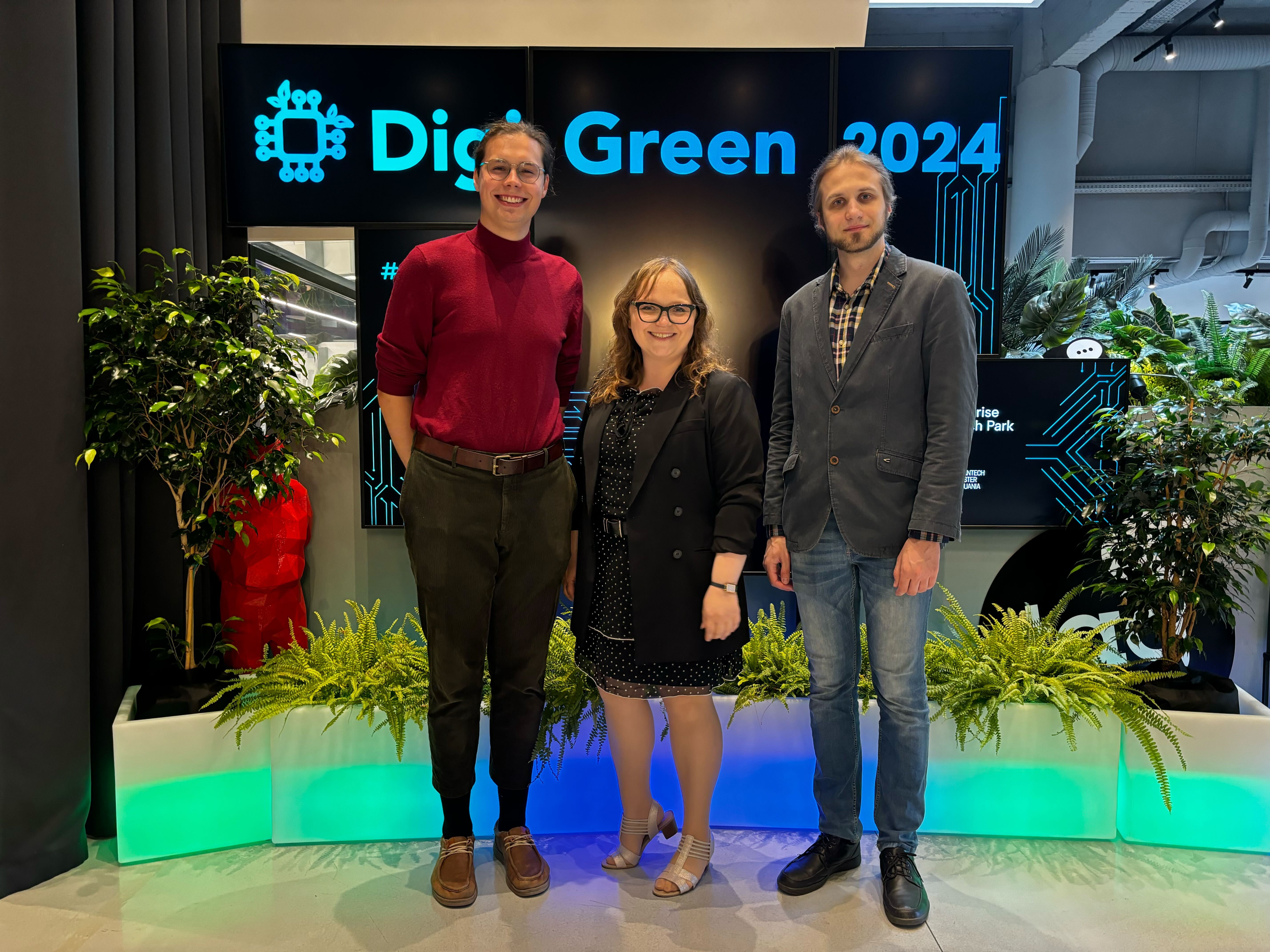Researchers of the Vilnius University Life Sciences Center (VU LSC) presented innovative enzymes for the degradation of polyester plastics at the DigiGreen 2024 conference.
Plastic pollution is one of the biggest problems facing modern society, with negative impacts on marine and terrestrial ecosystems as well as on human socio-economic well-being and health. VU LSC researchers are working hard to find sustainable and environmentally friendly ways to degrade plastics and use their degradation products in the circular economy.
The conference was attended by VU LSC representatives: PhD student Vilius Malūnavičius and BSc Jokūbas Daunoras, led by Assoc. Prof. Renata Gudiukaitė. She is known for her research on the use of enzymes in industry, especially in biodegradation processes. The team she leads is studying different lipolytic enzymes from Geobacillus bacteria aiming to understand their mechanisms of action and optimise their properties for industrial applications.
In the panel "The Science for a Cleaner Future: Deploying Engineered Enzymes Against Polyester Pollution", Vilius Malūnavičius and Jokūbas Daunoras presented how enzymes, either naturally produced by microorganisms or genetically engineered, can be used to degrade polyester plastics/polyesters.

Polyesters include various types of plastics with an ester linkage. Their research focuses on lipolytic enzymes from bacteria of the genus Geobacillus. These thermophilic bacteria are able to operate over a wide range of temperatures, including high temperatures. Researchers have been studying these enzymes for many years to understand their properties and improve their ability to degrade or synthesize esters.
"We decided to see if our enzymes could degrade polyesters and were pleasantly surprised to find that a few enzymes improved by protein engineering experiments could do so. The ultimate goal is to obtain enzymes that can break down plastics such as polyethylene terephthalate (PET), which is the material used in plastic bottles, with efficiency and that can be applied at industrial level. It would be great to develop a process by which plastic degradation products can be reused to produce higher value-added products," said Malūnavičius and Daunoras.
The researchers are working with waste recycling companies to develop enzymes capable of degrading different types of plastics.
"The team at the VU Innovation Department was interested in the technology we were developing and put us in touch with several waste recycling companies. So far, we are conducting research in the lab, but we hope that one day it will be more widely applicable. We chose the science route because we want to develop solutions that help people and the environment around them," say the researchers.
The DigiGreen 2024 conference, which took place in Vilnius in June, was dedicated to sustainable solutions and innovation in the fields of finance, environment and biotechnology. The event brought together researchers, industry representatives and policy makers to address pressing environmental issues and promote sustainable technological development. The conference featured discussions, presentations and workshops exploring the different ways in which science and technology can contribute to a cleaner future.
